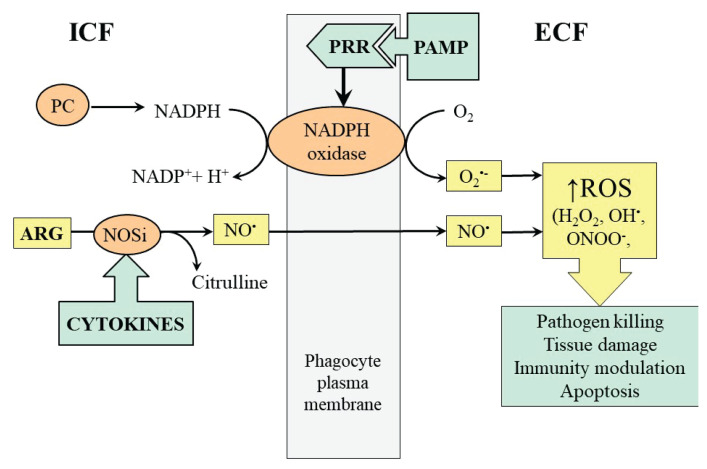Επειδή δεν έχω τον χρόνο να μεταφράσω, ας ρίξετε μια ματιά εδώ κυρίως για τις ΠΑΡΕΝΕΡΓΕΙΕΣ από την λήψη αμινοξέων. Υπάρχει ειδικό εδάφιο με τίτλο:
"Side effects of increased intake of individual amino acids" (Παρενέργειες από αυξημένηη λήψη ΜΕΜΟΝΩΜΕΝΩΝ αμινοξέων) και ξεκινάει με πρώτη την Aργινίνη [L-Arginine (ARG)].
Το αγγλικό κείμενο εν προκειμένω είναι αυτό:
Side effects
There are reports of gastrointestinal distress, such as nausea and diarrhea [
6,
13]. A significant increase in weight and protein content in the kidneys was observed after a two-month intake of ARG-enriched diet in the rat [
14]. Overstimulation of NOS by ARG load may induce hypotension due to NO-mediated vasodilatation, which was observed in subjects receiving a large dose of ARG intravenously [
23]. Therefore, recommendations to increase ARG intake should aware its negative interaction with blood pressure medications. Unclear are the effects on tumor growth [
5,
6,
12].
A serious problem with the use of ARG in therapy of cardiovascular disorders is that its beneficial effects disappear if it is given chronically. Benefits of ARG (3–9 g/d) in patients with peripheral artery insufficiency observed after 3 months [
18] were not observed after 6 months [
24]. Similarly, the short-term benefits of ARG in myocardial infarction observed after one month [
19] were not observed in myocardial infarction trial with 153 patients randomly assigned to ARG (9 g/d) or placebo for 6 months. In addition, 6 patients in the ARG group died during the study [
25]. The authors concluded that ARG should not be recommended following acute myocardial infarction.
It is supposed that the loss of therapeutic effects of ARG upon long-term supplementation in humans (“L-arginine tolerance”) is due to oxidative stress. It was shown that endothelial cells exposed to physiologically relevant concentrations of ARG manifest NOS down-regulation and superoxide and glucose cumulation [
26]. In addition, it was shown that long-term ARG supplementation increases formation of ROS and decreases NO production in old mouse aortas and accelerates functional decline of kidney in aging. Hence, it was suggested that ARG supplementation should be avoided in elderly population [
27].
Oxidative stress and ARG consumption for NO synthesis, resulting to decreased concentration of ARG in plasma, is activated during inflammatory response, especially during sepsis. The NO released by phagocytes participates in vasodilation at the site of inflammation and under conditions of simultaneously increased ROS production gives rise to cytotoxic peroxynitrite, which plays a role in potential damage to its own structures (
Fig. 2). Only a few studies have evaluated effects of ARG supplementation on individuals with sepsis [
17].
Fig. 2.
 Open in a new tab
Open in a new tab
The role of ARG in NO and ROS formation by phagocytes during sepsis. PRR, pathogen recognition receptor; PAMP; pathogen-associated molecular pat-tern; PC, pentose cycle.
There have been few studies investigating the specific effects of ARG supplementation on the distribution of amino acids in plasma and tissues. In our study, in rats consuming ARG-enriched diet for 2 months increased plasma concentrations of urea, creatinine, ARG, and ornithine and decreased concentrations of most of other amino acids. ARG and ornithine increased also in muscles and kidneys. In most of examined tissues, including liver, soleus and extensor digitorum longus muscles, and kidneys, decreased methionine, phenylalanine, threonine, asparagine, glycine, serine, and taurine. An increase of lysine was observed in muscles [
14].
Resume
Careful studies are necessary to determine under which conditions ARG supplementation is appropriate and when it is undesirable. Attention should be focused to markers of oxidative stress and blood pressure stability.
Όλο το άρθρο από εδώ:
The aim of the article is to examine side effects of increased dietary intake of amino acids, which are commonly used as a dietary supplement. In addition to toxicity, mutagenicity and carcinogenicity, attention is focused on renal and ...

pmc.ncbi.nlm.nih.gov


